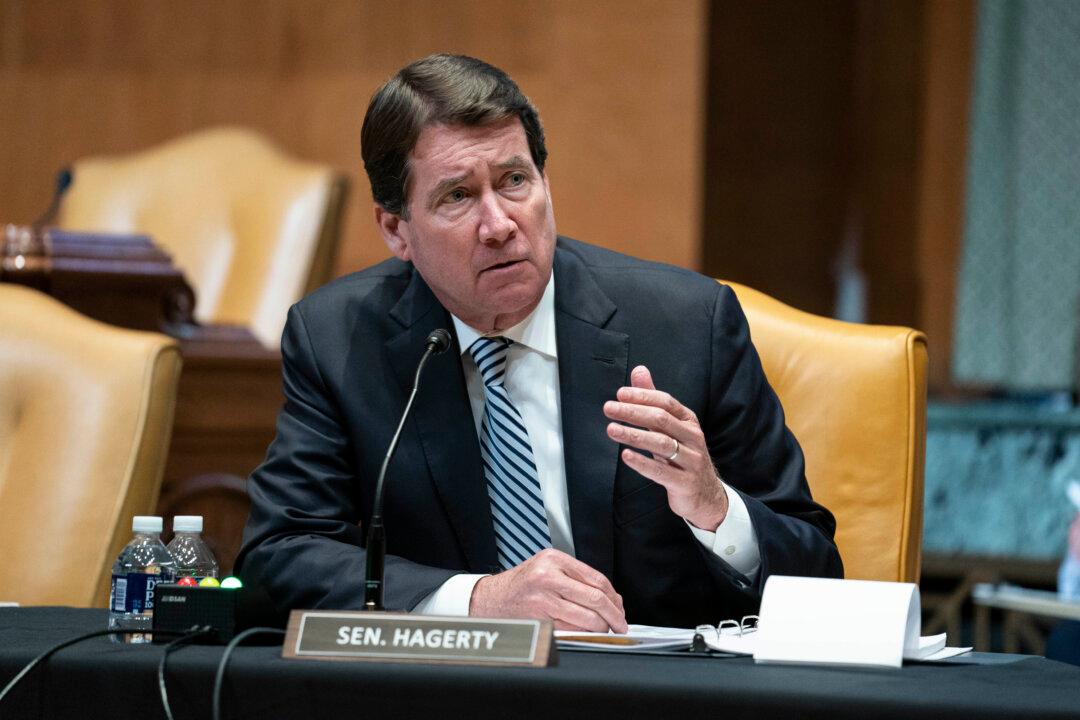Sen. Bill Hagerty (R-Tenn.) has denounced the Biden administration’s plan to start a “Disinformation Governance Board,” saying that the plan is likely illegal.
Department of Homeland Security Secretary Alejandro Mayorkas announced the creation of the board in April, days after Elon Musk secured a $44 billion deal to buy Twitter. The idea of the new agency was immediately criticized by lawmakers and social media users alike, with many comparing it to George Orwell’s “Ministry of Truth” in the novel “1984.”





